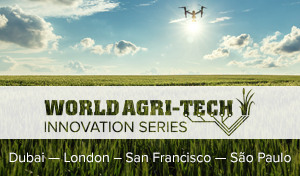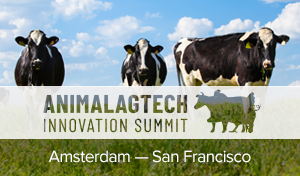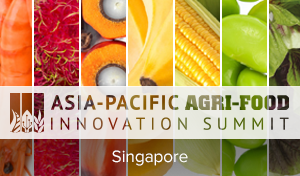AI in Agriculture Forum
Preparing for the AI Revolution from Seed to Shelf
Location: Nob Hill, San Francisco Marriott Marquis
Date: Monday March 10
Join World Agri-Tech’s pre-summit AI in Agriculture Forum to participate in collaborative discussions on the impact of AI along the agri-food value chain. From supply chain optimization to crop cultivation in line with market and consumer needs, the forum provides a dedicated space for senior agri-food leaders to discuss challenges and learnings, explore practical use cases and case studies, and network with industry peers.
Please note: The fee for this event is $295. Registrants must purchase an in-person pass for World Agri-Tech to attend. Follow the link below to purchase your in-person summit pass and select Pre-Summit AI in Agriculture Forum as an add-on.
Program
Find out how AI is connecting the dots across the agri-food supply chain for increased transparency, sustainability, and resiliency.
- How are AI and GenAI simplifying the process of understanding supply chain activity, and what could be the impact on agri-food sustainability and resilience?
- How can we utilize AI to analyze and reduce environmental footprints across the value chain?
- How can AI help to predict and address supply chain disruptions to improve agility and resilience?
- How do we expect these models to shape the value chain in the short-, near- and long-term? Where will we see the biggest impacts?
Hear insights into real-world AI-powered genetic applications and how they are driving innovation from seed to shelf.
- How are AI models leveraged in gene editing and breeding, what problems do they address, and how can they create value across the agri-food supply chain?
- What roles do bioinformatics and AI play in identifying new, non-intuitive targets for gene editing, and what are the impacts on crop yield, resilience, and nutrient density?
- How is AI enabling predictive breeding, and what outcomes will this lead to?
- How can AI be utilized in an unbiased and ethical manner? What safeguards must be established?
Dive deeper into AI and GenAI capabilities and uses cases across the agri-food innovation ecosystem. Delegates will break out into groups led by forum speakers, working together to discuss potential solutions to a pressing industry problem. Each group will then present their findings at the end.
Get the intel on how AI is driving biological R&D and what its impact on product performance and agri-food sustainability is.
- How are AI and GenAI transforming biological development and agri-food sustainability? How are agribusinesses, start-ups, and food brands collaborating to achieve shared goals?
- How is AI supporting the identification and development of biological products for crop protection? What is the impact on product efficacy, stability, and scalability?
- What is the role of AI in driving bionutrition and biostimulant innovation in line with farmers’ needs?
- How can AI models support regulatory processes, from testing cycles and product registration to market entry?
Dive into the latest AI-fueled developments and innovations in crop cultivation.
- How is AI becoming an aid to agronomists and farmers? Could AI link weather and field data insights to potential disease or pest occurrence to provide recommendations for preventative action? What AI-enabled advisory models are emerging, and what impacts will they have on food production globally?
- What data is needed? How do we aggregate real-time and historic data, where do we see gaps, and what processes for quality assurance do we need to implement?
- How can AI support the analysis of data for more precise, real-time decisions? What will be the impact on growers’ bottom lines?
- How can technology providers collaborate with farmers and agronomists to optimize product development?
Dive deeper into AI and GenAI capabilities and uses cases across the agri-food innovation ecosystem. Delegates will break out into groups led by forum speakers, working together to discuss potential solutions to a pressing industry problem. Each group will then present their findings at the end.

 CLOSE
CLOSE







